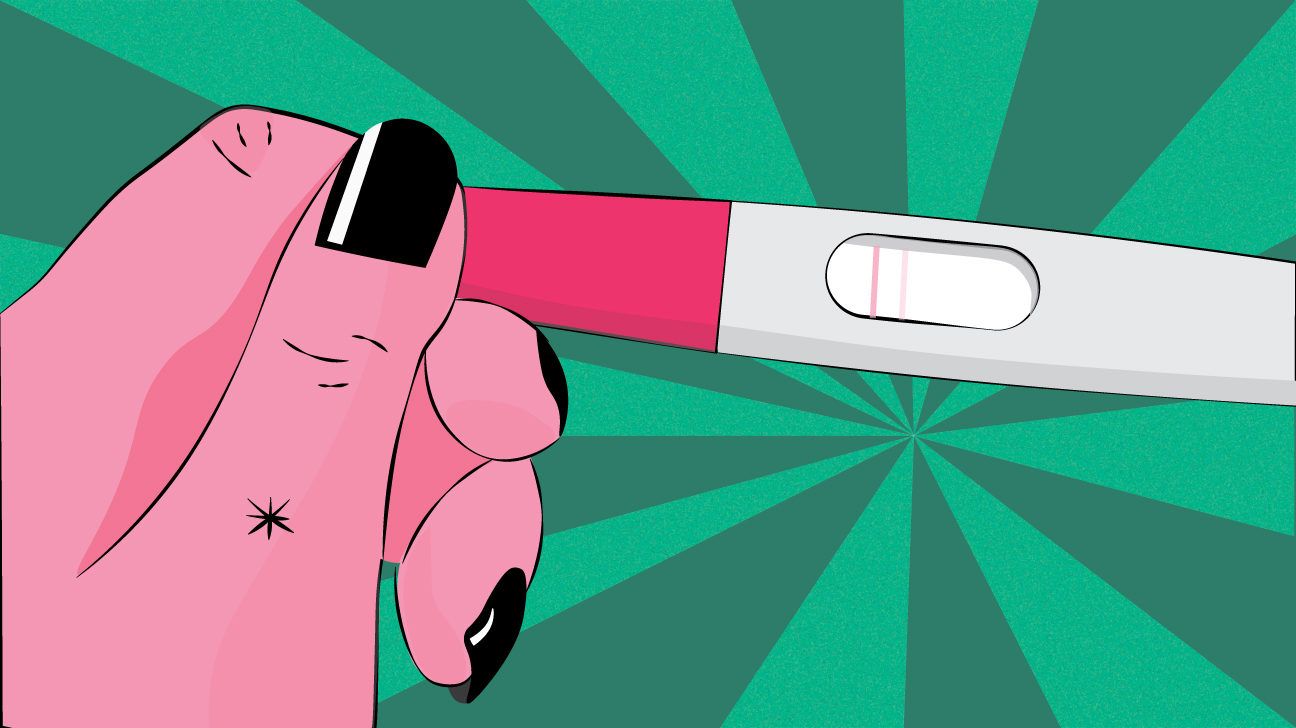Wondering if a faint positive pregnancy test means you’re pregnant? Discover what a faint line might indicate, why it happens, and what steps to take next. Learn about early pregnancy symptoms and when to consult a doctor.

It’s like an optical illusion. You stare at it until your eyes cross, and you still don’t know if they’re playing tricks on you. Is the dress black and blue or white and gold? Is there a positive line on that pregnancy test, or are you imagining it?
OK, there is a line, but it’s so faint… is it really positive? So much is riding on that line — you want to be sure. Maybe you’ve had some of these early pregnancy symptoms: cramping, sore breasts, nausea, moodiness. And the big one: Your period is late.
First, take a deep breath. Pregnant or not, you still need oxygen. OK? OK.
If you follow the directions and time it right, at-home pregnancy tests are nearly 99 percent accurate. They work by measuring a hormone called human chorionic gonadotropin (hCG) in your urine.
Your body only makes hCG when you’re pregnant. A chemical in the pregnancy test will change color to indicate the presence of hCG in your urine.
According to the U.S. Department of Health and Human Services’ Office of Women’s Health, even a faint line probably means you’re pregnant. If you’re very early in pregnancy, your hCG levels may be low, which is why the line is so faint.
It’s not weird at all to have trouble interpreting a sorta-positive pregnancy test. Here are a few explanations for why you might see a faint positive line.
The most likely explanation for a faint positive line is that you are indeed pregnant. It’s all about that hCG.
At first, hormone levels are very low, which could be why the line is so faint. After implantation, hCG doubles every 2 to 3 days, reaching detectable levels in urine 12 to 15 days after ovulation — or when you’d otherwise expect your period to start.
Though some tests can detect pregnancy earlier, it’s a good idea to wait until after the first day of your missed period to get the most definitive results. Test your urine first thing in the morning when it’s most concentrated.
Also, remember that the time ranges of all these biological processes are just estimates! You’re a complex creature of Mother Nature, not a robot. Timing of periods, ovulation, implantation, and hCG production all vary by the person.
If the test doesn’t confirm what your gut says, wait a few days and test again.
An evaporation line — a common and cruel phenomenon — is not a positive test result.
As urine dries on the pregnancy test, a very faint line may appear. It’s usually not the same bright color as a positive line and appears later, when the test has had time to dry.
How do you avoid this trickster? Read your test’s instructions and check the results within the recommended time frame. To be accurate, set a timer. Don’t forget the stick on your bathroom counter for an hour and then try to interpret ghostly evaporation lines.
According to the March of Dimes, 10 to 15 percent of pregnancies end in miscarriage — and that only accounts for instances in which the woman knows she’s pregnant.
Many miscarriages happen very early, before a pregnancy has been clinically recognized. Another term for this is “chemical pregnancy.” Though the pregnancy ends soon after implantation, the body may already be producing enough hCG to test positive.
Often the bleeding associated with an early miscarriage is mistaken for a regular period, and you may not even know you were ever pregnant.
Even after a later miscarriage, hCG levels will take some time to drop down to zero, and urine may still test positive. Ectopic pregnancy, menopause, some fertility drugs, and some ovarian conditions can affect hormone levels and result in a false positive.
Wait a few days and take another test. Signs still unclear? It wouldn’t hurt to see a doctor. They can do a blood test, another urine test, or an ultrasound to see if there’s really an embryo on board. Once you know for sure, you can move on to deciding what to do next.
If you’re certain you’re pregnant or you feel like your symptoms don’t match up with the test results, seeing a doctor will clear things up and possibly identify pregnancy problems or other things that could be causing you to feel weird.
If you want to be pregnant, go ahead and start taking a daily multivitamin with folic acid to help prevent developmental issues for the fetus. The earlier you start prenatal care, the healthier you and your future baby will be.
Figuring out if you’re pregnant isn’t always easy. You might bleed when you’re pregnant and think it’s just a weird period. You may miss periods and not be pregnant but have another condition that needs attention (like PCOS, menopause, or stress).
Home pregnancy tests are a cheap-ish, private way to see if you’re pregnant. If you get ambiguous results, don’t ask your friends to look at your pee stick. See a doctor for more definite answers.
